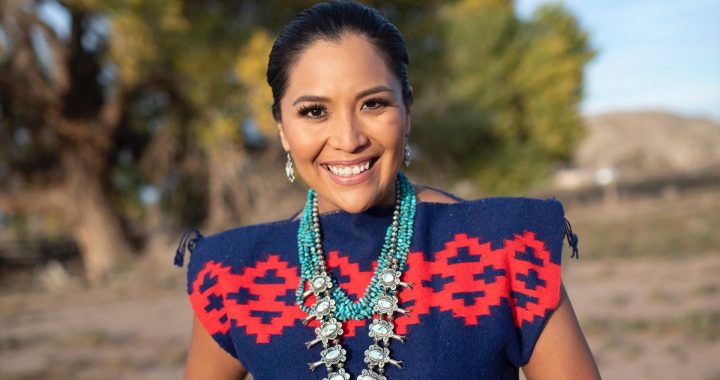An international women’s advocacy group is urging the Canadian government to immediately establish an external review to halt human rights abuses perpetrated by the RCMP against women.
Evidence of widespread misogynistic discrimination, harassment and violence by the federal police force “is shocking, and it is growing,” says the Feminist Alliance for International Action (FAFIA) in a 50-page report released Monday.
“Over the last decade, numerous reports from legal experts and human rights organizations have documented violence against women by RCMP Officers, including harassment, sexual assault, rape, and sexualized verbal abuse,” the group says.
“These reports show that Indigenous women are particular targets of sexualized violence by RCMP Officers, and, as the crisis of murders and disappearances reveals, their lives are also especially endangered by RCMP failures to protect them.”
In an accompanying press release, Mi’kmaw lawyer Pam Palmater, one of the report’s four co-authors, calls the Mounties’ use of the “bad apples” defence a deflection tactic that no longer withstands scrutiny.
“The RCMP have become a national public safety crisis for women both inside and outside the RCMP, especially in relation to their role in the crisis of abused, neglected, missing and murdered Indigenous women and girls,” Palmater says. “It’s long past time that the federal government take urgent action to prevent the rape or sexual assault of another woman or girl by the RCMP.”
The report, titled The Toxic Culture of the RCMP, cites a detailed list of evidence, notably the Nov. 11, 2020 review by former top court judge Michel Bastarache: Broken Dreams, Broken Lives.
In 2016, Bastarache was appointed to do the review under the Merlo Davidson Settlement Agreement, a class-action settlement that eventually saw more than 3,000 women file claims for compensation for sexual harassment within the RCMP.
Bastarache’s findings were blistering. The former judge concluded “that the culture of the RCMP is toxic and tolerates misogyny and homophobia at all ranks and in all provinces and territories.”
Bastarache was equally harsh on racism, saying, “The RCMP leadership or membership either does not understand what systemic racism is, or if they do, they do not believe that it exists within their organization, or they are willfully blind.”
The review said this toxic culture can’t be fixed from within and suggested the time has come for an independent external review to determine what the RCMP’s organizational future should be.
Read more
It’s time to ‘break up’ the RCMP says expert
Indigenous Services minister says RCMP commissioner must fulfill promise made to MMIWG inquiry
With some 30,000 employees, the RCMP is the largest law enforcement agency in the country. The force bills itself as a “world-renowned organization” of unparalleled professionalism and policing skill, but it is in fact a hierarchical paramilitary organization involved in numerous controversies since it was established in 1919.
The RCMP’s predecessor, the North-West Mounted Police, was established in 1873 to, among other things, colonize Indigenous people and establish Canadian sovereignty in what are today’s northwestern provinces and territories.
Like Bastarache, the National Inquiry into Missing and Murdered Indigenous Women and Girls heavily criticized the RCMP for its mishandling or refusal to investigate cases.
“The RCMP have not proven to Canada that they are capable of holding themselves to account,” the inquiry said. “In fact, many of the truths shared here speak to ongoing issues of systemic and individual racism, sexism, and other forms of discrimination that prevent honest oversight from taking place.”
More recently, in the wake of the murder of George Floyd by a police officer in the U.S., the RCMP and other forces have faced scrutiny, calls for accountability and a growing movement to reform or defund the police.
In June 2021, an all-party House of Commons committee urged the federal government to transition the RCMP away from its paramilitary structure, beef up civilian oversight, end contract policing and help provinces set up their own forces.
Last month, a B.C. legislature committee backed this idea and suggested the province should stop contracting the Mounties, noting the force’s “history of colonization and discrimination towards Indigenous peoples.”
The FAFIA report adds its findings and recommendations to this list. It alleges the RCMP criminalizes and spies on women land defenders and ignores domestic abuse.
In addition to an external review, the group urges Canada to investigate and prosecute any instances of officer-perpetrated violence and immediately implement Bastarache’s 52 “stop-gap” solutions.
It says Canada should replace the Civilian Review and Complaints Commission (CRCC), dubbed “toothless” by civil liberties groups, with a more powerful and better-funded agency.
The report also says Indigenous women should be included in all decision-making on the RCMP’s future.
“Canada cannot have a credible National Action Plan on Violence against Women, or a credible National Action Plan on Missing and Murdered Indigenous Women and Girls, until we confront the deeply entrenched misogyny and racism in the culture of the RCMP,” it says.









